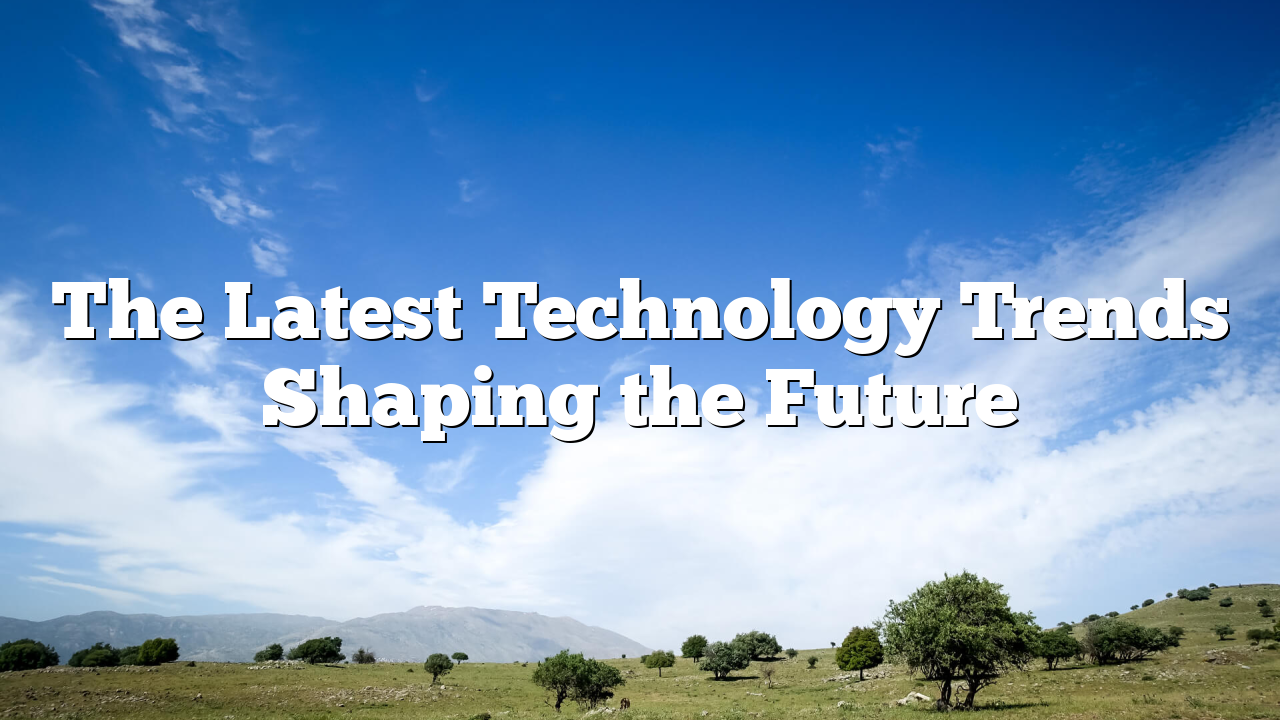In today’s fast-paced world, technology continues to evolve at an unprecedented rate, influencing industries, businesses, and daily human life. The latest technology trends are not only reshaping the way we work and interact but also opening doors to opportunities that were unimaginable a decade ago. From Tempur99 artificial intelligence to sustainable innovations, these developments are redefining the digital era.
One of the most prominent trends is Artificial Intelligence (AI). AI has moved far beyond experimental applications and has become an integral part of business operations, healthcare, education, and entertainment. Generative AI, for example, is transforming how content is created—whether through text, images, or video—while machine learning algorithms are making processes faster and more accurate. Businesses leverage AI for predictive analytics, customer service chatbots, and fraud detection, highlighting its versatile role in modern society.
Another transformative innovation is the Internet of Things (IoT). By connecting everyday objects to the internet, IoT is creating smart homes, smart cities, and even smart industries. Devices such as wearables, connected cars, and industrial sensors enable seamless communication and data sharing. This integration not only improves convenience and efficiency but also raises important questions about cybersecurity and data privacy, making security innovation equally critical.
Supporting these digital advancements is 5G technology, which provides ultra-fast internet connectivity. The rollout of 5G is enabling new possibilities such as immersive augmented reality (AR) and virtual reality (VR) experiences, autonomous vehicles, and advanced telemedicine. Its low latency and high capacity are revolutionizing how industries operate, paving the way for a more connected and intelligent infrastructure.
Meanwhile, blockchain and Web3 technologies are gaining momentum as they promise greater transparency and decentralization. Beyond cryptocurrencies, blockchain is being applied to supply chain management, voting systems, and secure digital identity. Although regulatory frameworks are still evolving, the potential impact of Web3 in creating trust-based digital ecosystems is undeniable.
Sustainability has also become a core focus in technological innovation. The rise of green technology emphasizes renewable energy solutions, energy-efficient devices, and eco-friendly manufacturing. From solar-powered systems to advanced battery technologies, these innovations aim to reduce carbon footprints and promote environmental responsibility. Businesses are increasingly investing in sustainable practices as both consumers and governments demand greener alternatives.
At the frontier of research, quantum computing is emerging as a game-changer. While still in its early stages, quantum computers hold the potential to solve complex problems in fields such as pharmaceuticals, materials science, and cybersecurity—tasks that traditional computers cannot handle efficiently. Although commercial adoption may take years, the race to achieve quantum advantage is intensifying among leading tech companies and research institutions.
These technological trends highlight a future that is smarter, more connected, and more sustainable. However, rapid innovation also brings challenges. Concerns over data privacy, digital inequality, and job displacement require careful consideration. Policymakers, businesses, and communities must collaborate to ensure that technology benefits society as a whole rather than deepening existing divides.
Ultimately, the latest technology trends illustrate the transformative power of human innovation. As AI, IoT, 5G, blockchain, green technology, and quantum computing continue to evolve, they will not only reshape industries but also redefine how we live, work, and interact in the years to come. The key lies in balancing progress with responsibility, ensuring that the future of technology remains both inclusive and sustainable.
